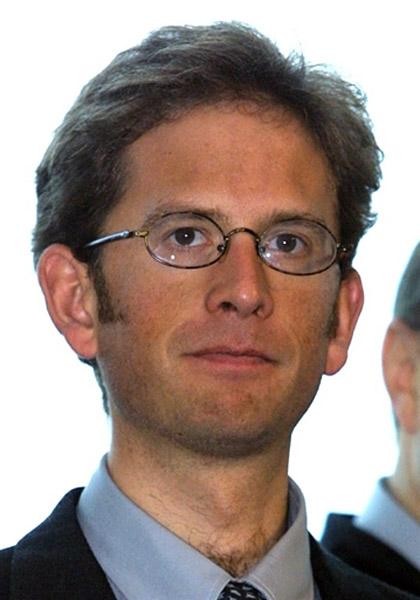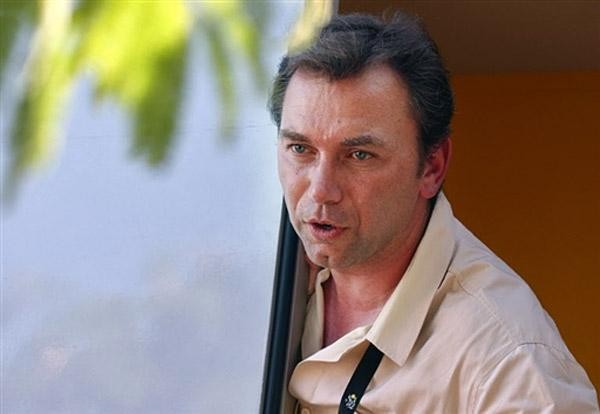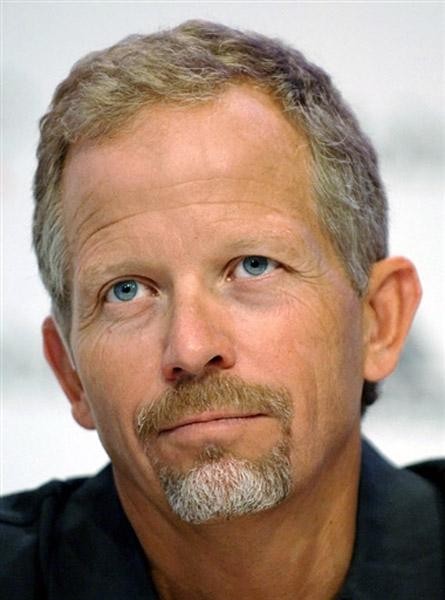Independent testing to continue alongside UCI's 'biological passports'
Beginning in 2007, Team CSC was the first to adopt a strict independent testing program which...






News Feature, January 18, 2008
With the announcement of the UCI's intention to roll out its 'biological passport' testing program this season, a question has arisen as to whether teams which have invested in their own similar testing programs will continue to pour hundreds of thousands of euros into testing their riders. Cyclingnews' Laura Weislo spoke with some of the sport's most innovative directors about the UCI's plan.
Beginning in 2007, Team CSC was the first to adopt a strict independent testing program which examined riders' blood profiles over the course of the season to detect any abnormalities which might suggest doping was taking place. Begun by Danish anti-doping expert Rasmus Damsgaard, the program was also adopted by the Astana team.
Around the same time, Team Slipstream hired the California based Agency for Cycling Ethics to perform its own testing program. The same company was later hired on by Team High Road for the 2008 season.
Slipstream director Jonathan Vaughters told Cyclingnews that the team will continue testing its own riders even after the UCI rolls out the 'biological passports'."We'll continue with our testing, but we will be fully integrated with the [UCI's] blood passport system. I am 100% behind the UCI's system and we will back it financially to any degree they deem necessary. We will also continue with our ACE program, as we feel its a complimentary element to the biological passport program."
New Astana general manager Johan Bruyneel will also continue using the services of Dr. Damsgaard while backing the UCI's program. "We surely will continue. We were one of the first teams to apply the Damsgaard system. It costs us a lot of money, but we all understand that it is the best way to prove that our team is clear."
Team High Road manager Bob Stapleton will also continue with the ACE testing program, and echoed the sentiment that it complements the UCI's tests, indicated that the company tailored its plan to work with the passports. "ACE aligned the program with the UCI," said Stapleton. "The same tests are being done [in both programs] and all results will go into a common profile," he continued. "Our rider profiles started being built with tests in October and will combine with the UCI tests when they begin."
Get The Leadout Newsletter
The latest race content, interviews, features, reviews and expert buying guides, direct to your inbox!
Stapleton pointed out that the ACE program is more comprehensive than what the UCI has planned. "We are profiling both blood and urine. This goes well beyond the UCI testing, but is a good investment in reinforcing comprehensive and frequent testing and testing for additional banned substances."
Not all teams are convinced of the need for a separate testing program. Gerolsteiner manager Hans-Michael Holczer called the independent testing programs "unnecessary", saying they are the wrong way to go. "As I see it, all the money that is put into this area should all go into a common program."
Potential for overlapping testing already evident
Bruyneel pointed out one potential down side of having riders subject to two separate testing programs. "Dr. Damsgaard performed his first surprise control already during our December training camp in Javea. By coincidence, one day later, UCI people arrived there to perform their out-of-competition controls on all riders. Let's hope that the controls of both organizations will not coincide the whole season."
He continued, saying the coincidental arrival of both testers did demonstrate one thing. "It proves that they work completely independent of each other," he mused. Bruyneel will continue to evaluate the necessity of the team's program during the season. "If, after four months, it appears that constantly double work is done, we can reconsider everything, but now, there is no reason to do so."
Vaughters pointed out that the ACE testing and UCI testing aren't exactly the same, opining that both are necessary. "The biological passport system will be 6-8 blood tests before the Tour for each rider. Each of those tests, if found to be abnormal, is a WADA sanctionable offence. The margins for a "positive" are greater in these tests to make sure that when they sanction someone, they are in all likelihood guilty."
"On the other hand, we'll have done about 18 blood tests before the Tour for each rider. Our margins are much narrower, but since these tests are not always done in WADA labs, they are not all sanctionable" Riders who show abnormal values from the ACE tests will first be pulled from competition while additional tests are performed. "ACE can pull a rider out of competition with perhaps a 60% probability that an adverse finding was doping related and not health related, and then investigate what the real problem is," Vaughters explained.
"ACE has great latitude because we (as Slipstream) and the riders on our team have voluntarily given them that latitude. On the other hand the UCI tests need to be ready for a legal fight, as the rider is facing a two-year suspension [if positive] and effectively the end of his/her career, so the test must be almost 100% accurate. Their margin of error is slim and they must treat each test as if the rider's life is at stake."
"So, although similar in optics, the bio-passport system and ACE are very different - and both very necessary, in my opinion," said Vaughters. "Honestly, I think cycling needs both approaches: punitive and preventative. Not one or the other. So, we're doing both."
Bruyneel also expressed faith in the UCI's evaluation of riders' blood profiles, saying that he trusts they will diligently pursue any abnormal results. "Every ProTour team agreed with the current UCI system based on the biological passports. We have to give them all our confidence. What convinced us the most is the fact that a team of experts makes the evaluation of the blood and urine results. The scientific experts come from countries all over the world; they are completely independent, objective and neutral."
The UCI's system is still very new, but it is clear that the teams who have already bought into the system of blood profiling are behind the UCI's passports. "The testing can be reliable and practical," said Stapleton, supporting the combination of team-funded independent testing and UCI's test results as a way for to prove riders are clean. "It must be frequent and start immediately across the sport to be effective. The more robust the baseline samples, the more useful the profile is. There is value in a disciplined and unannounced test process alone."
Additional testing draws concern
The introduction of the biological passport program isn't without controversy. While the International Professional Cycling Teams (IPCT) threw their support behind the idea this week, the president of the riders' association (International Association of Professional Cyclists (CPA)), Cédric Vasseur, was critical of the idea when it was first introduced last fall.
Aside from concerns that riders would become human pincushions, Vasseur was also concerned that abnormal results would find their way to the media before they were confirmed, thereby destroying a riders' reputation. "This passport can serve as a tool to combat doping, but it shouldn't be used by the media," he said in October. "It should remain the business of the doctors, the UCI and WADA."
Bruyneel agreed with the need to keep results confidential until strong evidence of doping can be confirmed. "I have no problems with leaks of truth. A positive case (based on the figures of that biological passport) may be thrown in public. Why not? But I cannot accept that non-checked rumours or are voiced in public. The resulting damage for a rider or sponsor is almost impossible to repair."
Stapleton hopes that the UCI will come up with a sound method for reviewing the results and taking action. "Clear steps must be taken in the case of unusual changes in body chemistry. The challenge is in the interpretation and investigation," he said. "This is new ground for rule making, review of results, and fair and impartial determination of sanctions.
"It is fair to have concerns about privacy and review procedures," he continued. "These issues must be addressed. We have a meeting with Mr. Vasseur in the next week and I am interested in his view and experience."
Vasseur was also critical of the lack of involvement in riders' in the decision to implement the biological passport, but Vaughters thinks the riders and teams should stay out of the business of deciding which anti-doping measures are implemented. "The referees are the ones that decide if a ball is out of bounds in tennis, not the players, eh? They (UCI, WADA) are the ones who enforce the rules of the sport, so it is their job to find the best ways to do this."
"It is our job (riders, directors) to make sure we conform to those decisions," he continued. "It is also our job to prevent infractions and cheating in the first place, not to just react to it. Of course, riders and directors should try and help them find the best methods to enforce the rules and, constructively, point out mistakes, but final enforcement and method decisions are for WADA and the UCI to decide."
Bruyneel revealed that some of the team directors did have an influence on the UCI's decision. "Not all of them of course, that’s why we have associations and representatives. We all realized that something had to be done. It was about the future and image of cycle sport."
Stapleton agrees, and told Cyclingnews that he will be in meetings with the UCI to learn more about the system next week. "Everyone must go into this with open eyes and solve problems," he said. "The biggest failure would be to delay further or fail to act in unity across the sport.
Bruyneel echoed that sentiment. "I am glad that finally teams and UCI have the same ideas on how to solve the problem. Believe me, clean professional cycling really exists.
Vaughters, too, sees the passports as a positive for the sport. "I'm convinced the UCI will do a good job with their part of the effort, so I better do a good job with mine - and ACE better do a really good job with theirs!"